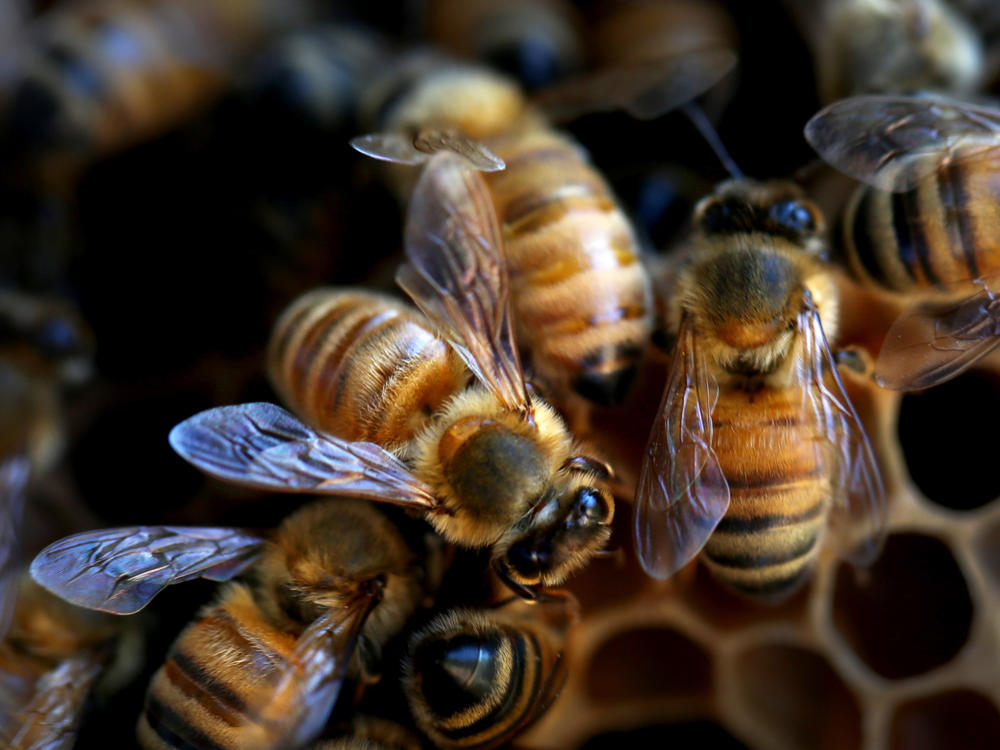Section Branding
Header Content
Why You Should Celebrate World Bee Day Today
Primary Content
Happy World Bee Day!
There's a day for just about everything, and the United Nations has designated May 20 as the day to celebrate the pollinators dwelling in hives, fields and gardens around the globe.
And there's good reason to pay attention to bees.
"There are 20,000 species of bees around the world and a lot of these bees are in decline," says Hien Ngo, a pollinator expert with the U.N.'s Food and Agriculture Organization.
That includes honeybees, of course, but Ngo says they only make up a fraction of all the kinds of bees in the world. Climate change, pesticides and habitat loss are putting many of those species at risk.
"Bees really provide for us in many ways — food provisioning, human well-being. They're important for our culture, dating back thousands of years in terms of heritage, inspiration of art," Ngo says.
They even provide inspiration for TikTok, where Erika Thompson, a professional beekeeper in Austin, Texas, shares her work.
"The landlord wanted to call an exterminator, but the family who lived here wanting to save the bees, so they called me," she says in one video.
Her fans watch with glee — and sometimes a little horror — as she picks up mounds of bees with her bare hands and then moves them somewhere safer.
All while staying calm, as one should.
"I've removed bees from a lot of crazy places," Thompson says. "You know, I've removed bees from homes, from RVs, from tires and speakers and even a couch one time and a toilet."
Thompson's work is about more than getting millions of views per video.
"Bees are just a key factor in creating diverse and healthy ecosystems," she notes.
Copyright 2021 NPR. To see more, visit https://www.npr.org.

